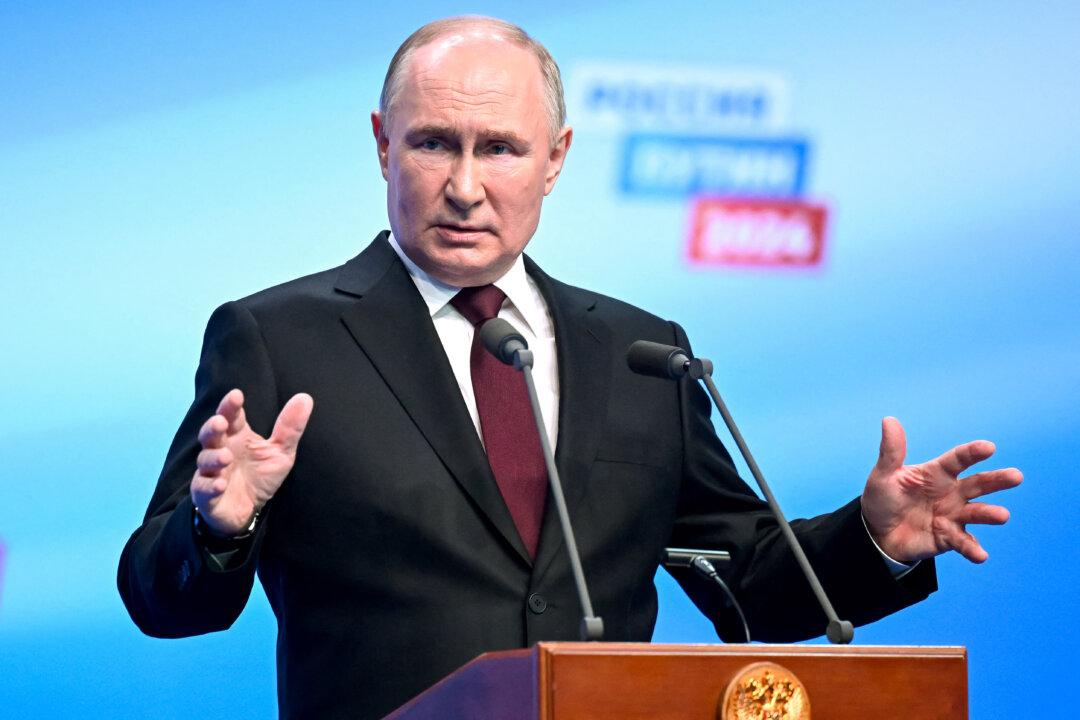Russian President Vladimir Putin won a record landslide election on March 17, according to early results, as Western officials have criticized the elections as being unfair and illegitimate.
It means that Mr. Putin, 71, will easily secure a new six-year term that will enable him to become one of Russia’s longest-serving leaders. He won 87.8 percent of the vote, according to an exit poll by the Public Opinion Foundation and state-run media.





